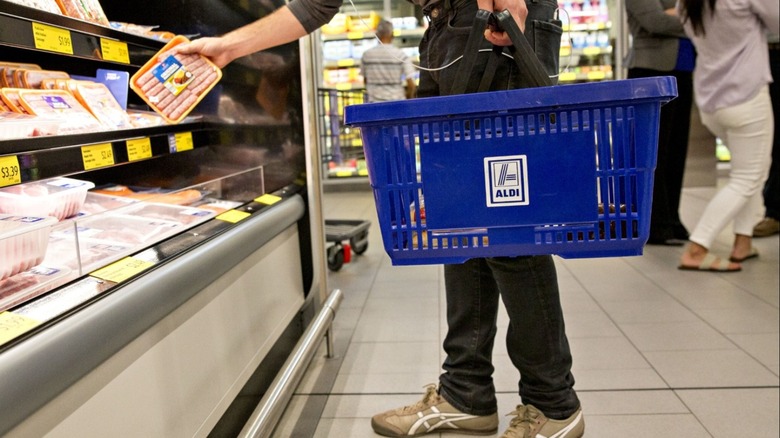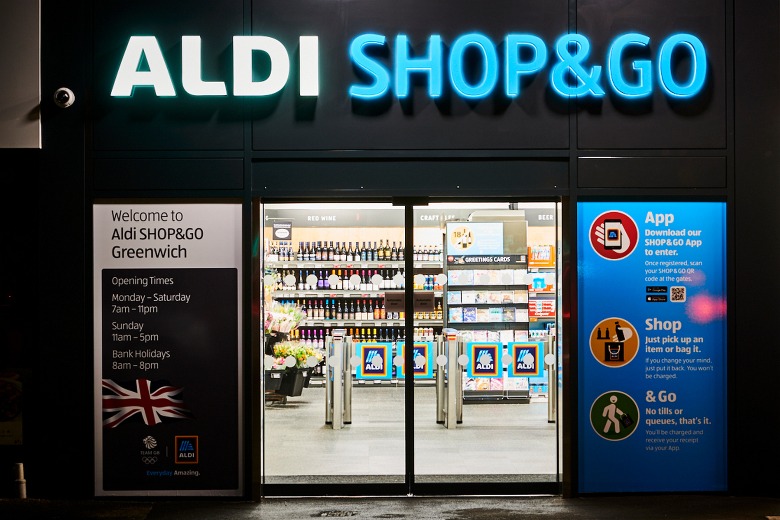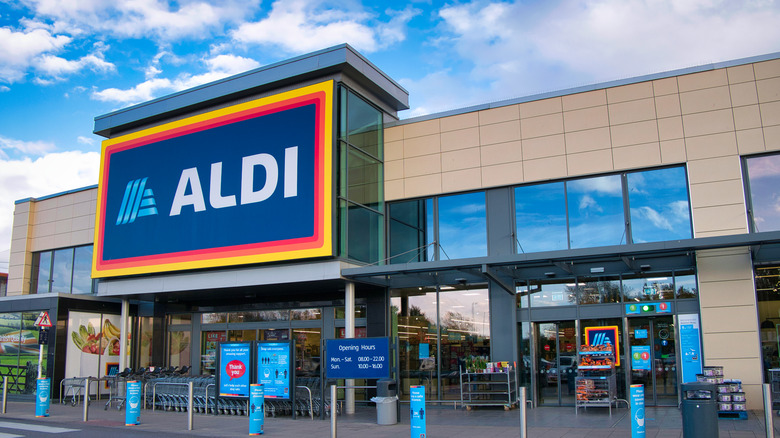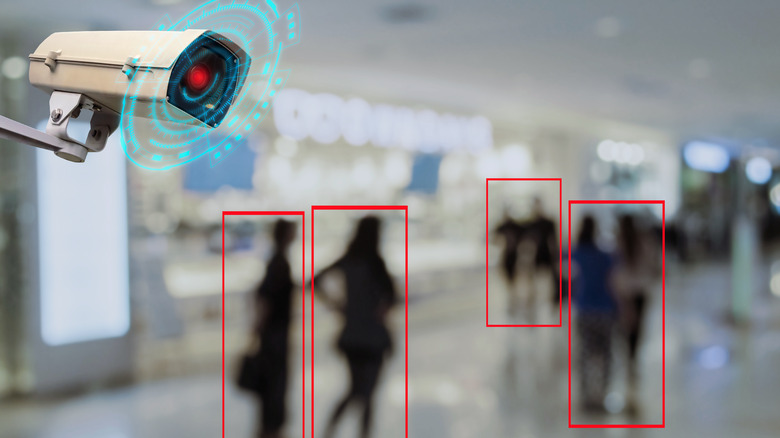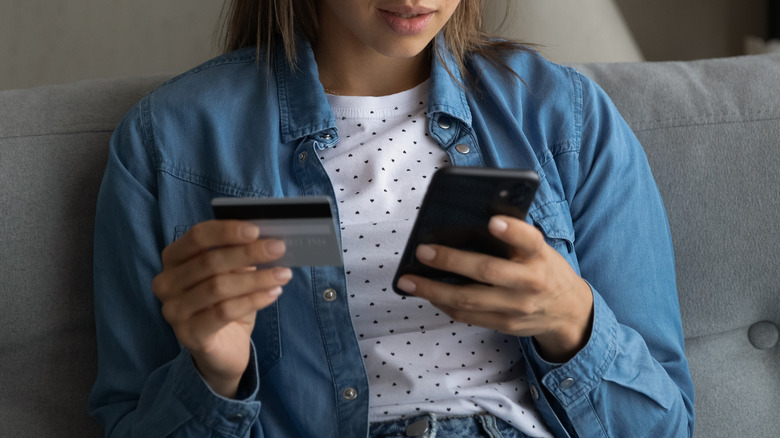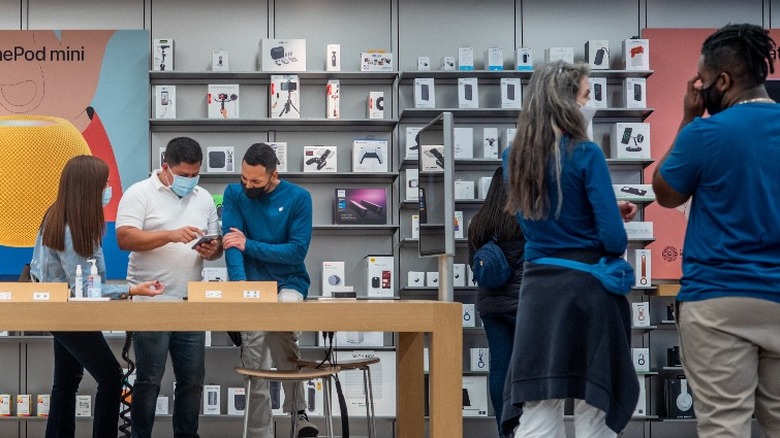What Aldi's First Checkout-Free Store Means For Technology
Supermarket chain giant Aldi is the latest brand to experiment with a checkout-free format for shopping at its brick-and-mortar outlets. Aldi is not the first name in the game to ditch the till, as big sharks like Walmart and Amazon have been rapidly expanding on the concept for the past few years. But the core premise remains the same — customers walk into a store, pick up their supplies under the eyes of cameras, and get going. The payment duties are handled in the background via an app or through a website.
Aldi is currently doing a trial run of the cashier-less shopping experience in London. But it likely won't be the last one, going by the market trend. Now, Aldi is nowhere near Amazon's capital prowess, but it currently runs over 950 outlets in the UK alone, over 1,600 stores across 35 states in the USA, and over five thousand stores worldwide, according to Forbes data. Even though the footprint isn't as expansive as the likes of 7-Eleven or McDonald's, Aldi's portfolio is still sizeable in its niche. And that means its adoption of cashier-free stores is going to make waves.
Aldi advancements in technology means a win for all
A till-free supermarket comes with its own set of overarching advantages. It can prove to be a boon for brands struggling with labor shortages, something the likes of Amazon continue to grapple with. A cashier-free shopping experience means there won't be a hassle of queuing up in stores, especially at close quarters in times of a global pandemic, and beyond. Minimal involvement of human labor also means saving on operational costs. But the biggest long-term benefit is being able to monitor customers' preferences and buying habits.
Per an Internet Retailing survey, 60 percent of shoppers actually favor a checkout-free experience. In an age where ad-targeting is fairly common, a cashier-free shopping experience can prove to be a boon for retail outlets when it comes to serving customers with custom product recommendations. All in all, it looks like a recipe tailor-made for benefitting both parties. But this is not an ideal world, and neither are the stakeholders in a capitalist segment where profits reign supreme over all agenda. With subject monitoring comes the risk of data harvesting, and the myriad potential of leaks and misuse that comes with it.
Uncomfortably invasive by design
For a checkout-free supermarket like Aldi's to operate successfully, it needs a commercial tech solutions that need a strict flow of processes. It all starts with the customer, who is recognized and monitored right from the entry via a facial recognition system. A sensing system monitors the goods that have been picked up, while a chain of cameras follows them around to see products that a customer has shown interest in. That surveillance data is used to create a customer profile for serving them relevant product recommendations and luring them with attractive offers.
At the end of the shopping journey, the customer walks out, leaving his/her facial recognition imprint at the exit to confirm the purchase and make the payment from a linked digital wallet. A cashier-less store's mission-critical systems such as payment linkage need to be impenetrable to avoid fraud, and so do the surveillance cameras that monitor human activity round the clock. For a bad actor, that's a mine of sensitive data that will find eager buyers in the black market.
The risks are real
Plus, there is always the threat of bad actors wreaking havoc from the inside. A WIRED investigation uncovered, in detail, how Amazon's bad data storage practices and snooping by employees are violating the privacy of millions of its customers. The situation becomes even more worrying when sensitive financial information is at stake. Earlier this month, the UK Treasury Committee also warned about the menace of online frauds. A fake message that spoofs the one sent by a retail chain can do everything from stealing money to scraping bank account credentials.
Amazon has to offer a $10 incentive to sign up users for its Amazon One palm scanning program that allows cashier-less, contact-less payment at its Amazon Go outlets. Needless to say, there is a very real privacy-invasion risk involved, and convincing customers to queue up will take its own sweet time. Yes, there are secure systems like Apple Pay in place, but even a malicious QR code can be planted to send money into a bad actor's account instead of paying for groceries.
Ethics and responsibility
Another key drawback of cashier-less stores is the lack of human touch, which can play a decisive role in a customer's purchasing behavior. There's a reason why the likes of Apple invest millions of dollars each year in training Apple Store employees to help shoppers. In a nutshell, building a chain of till-free supermarkets would need more than just a deep pocket to build the necessary infrastructure.
It needs responsible and ethical handling of the technology at disposal. And if possible, the creation of an industry-wide framework that covers all the necessary safety aspects with the involvement of regulatory agencies. Per a report from The Wall Street Journal, the trend of cashier-less stores are here to stay and prosper, but appropriate checks need to be put in place, ere they spiral into the same risky hellscape that social media platforms — and the internet, as a whole — have plunged users into.
